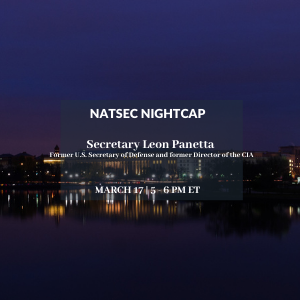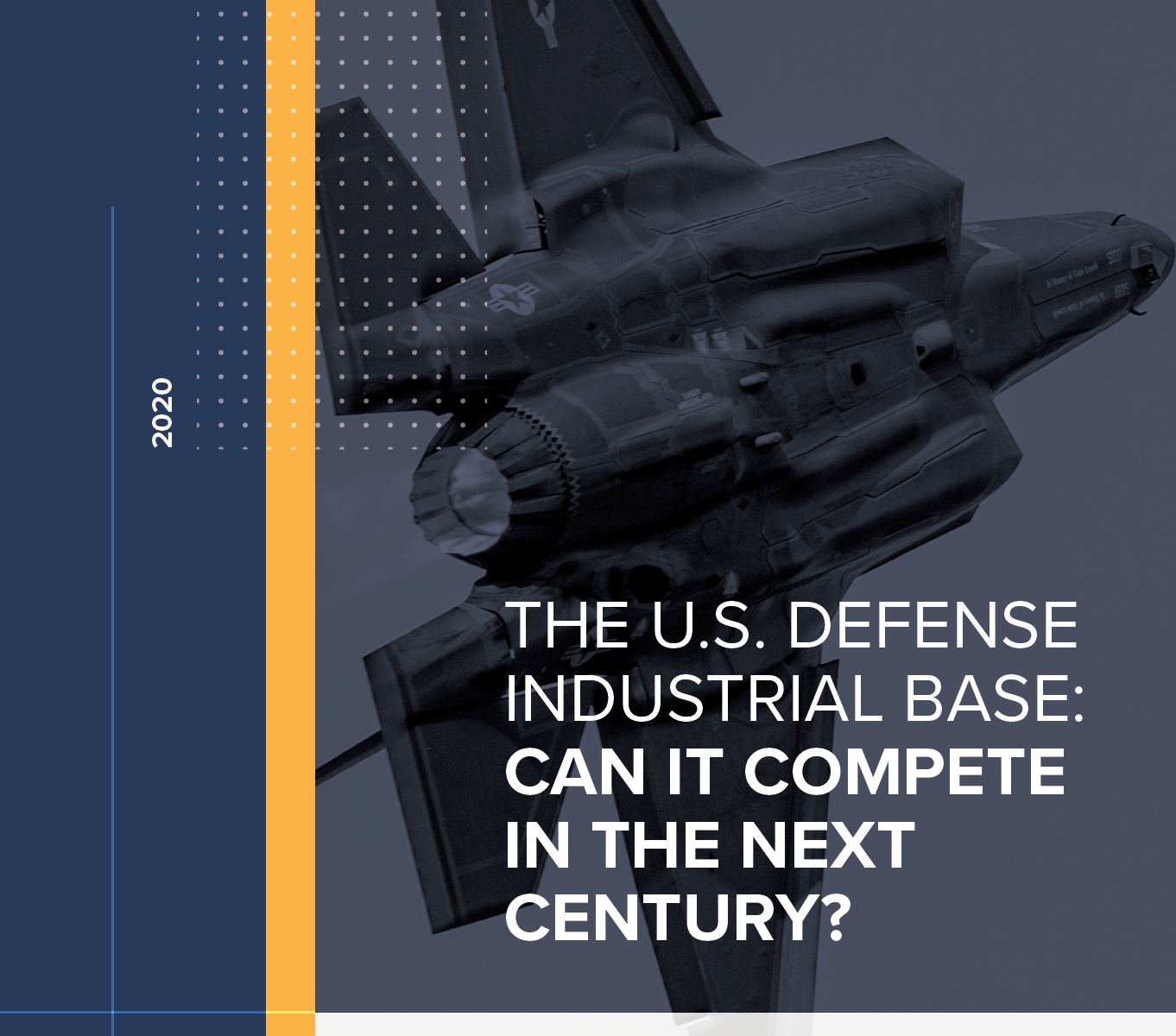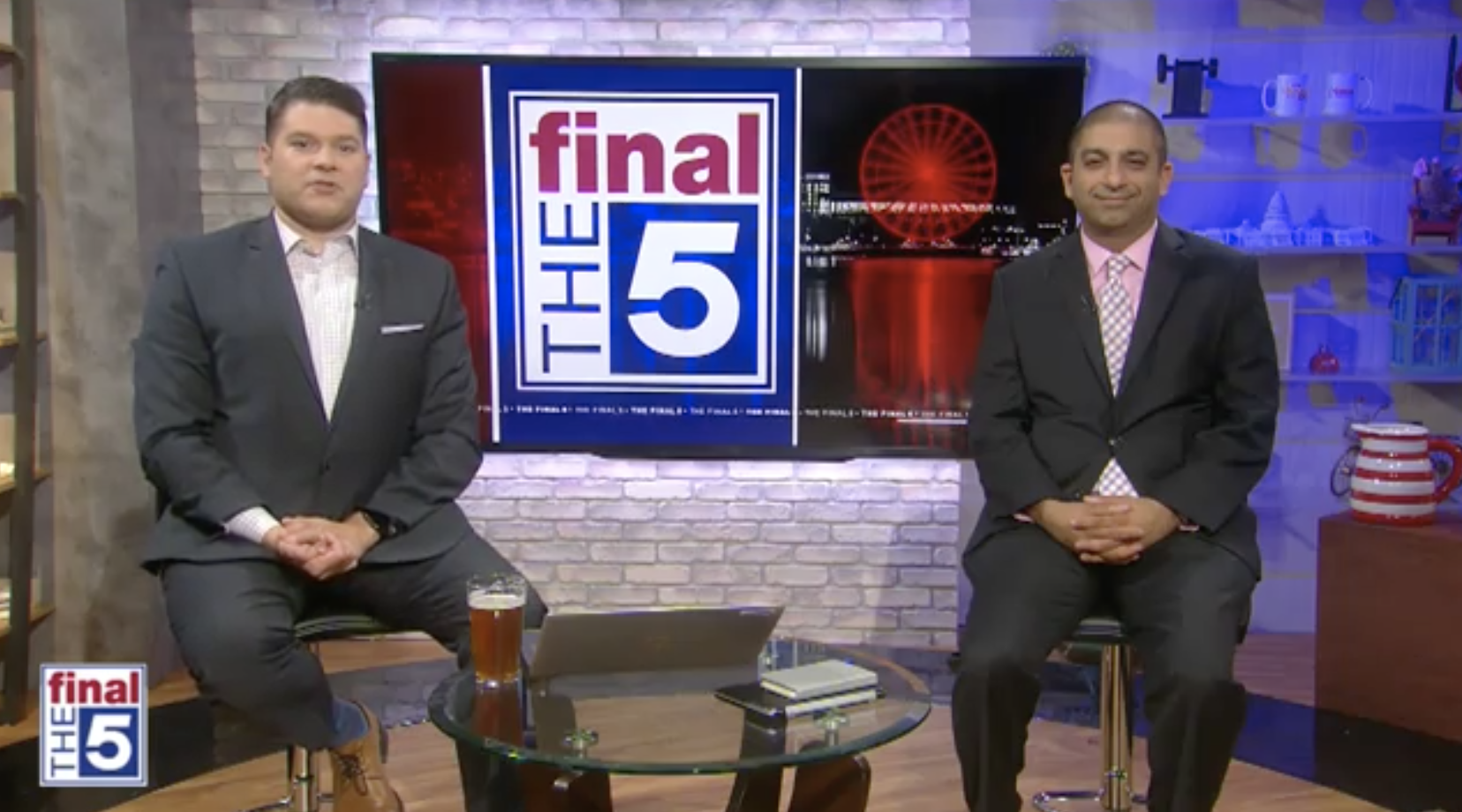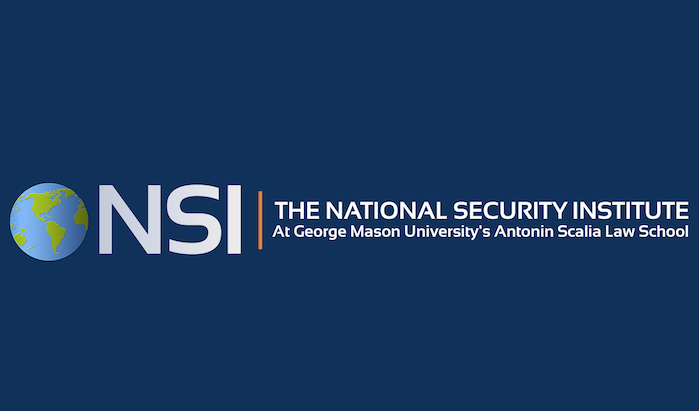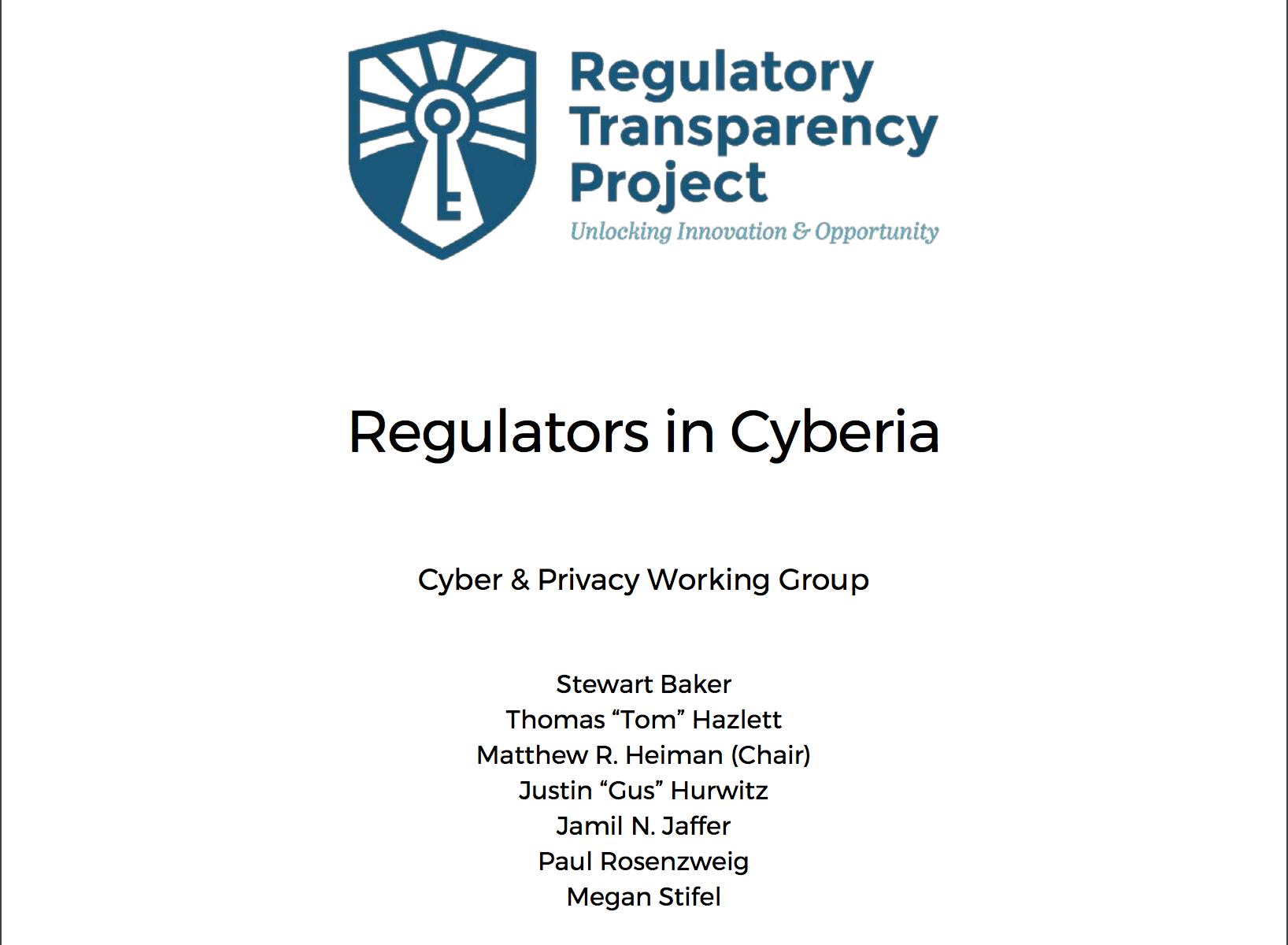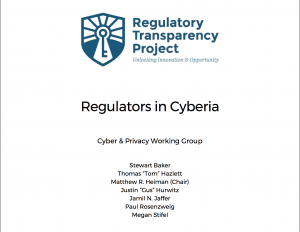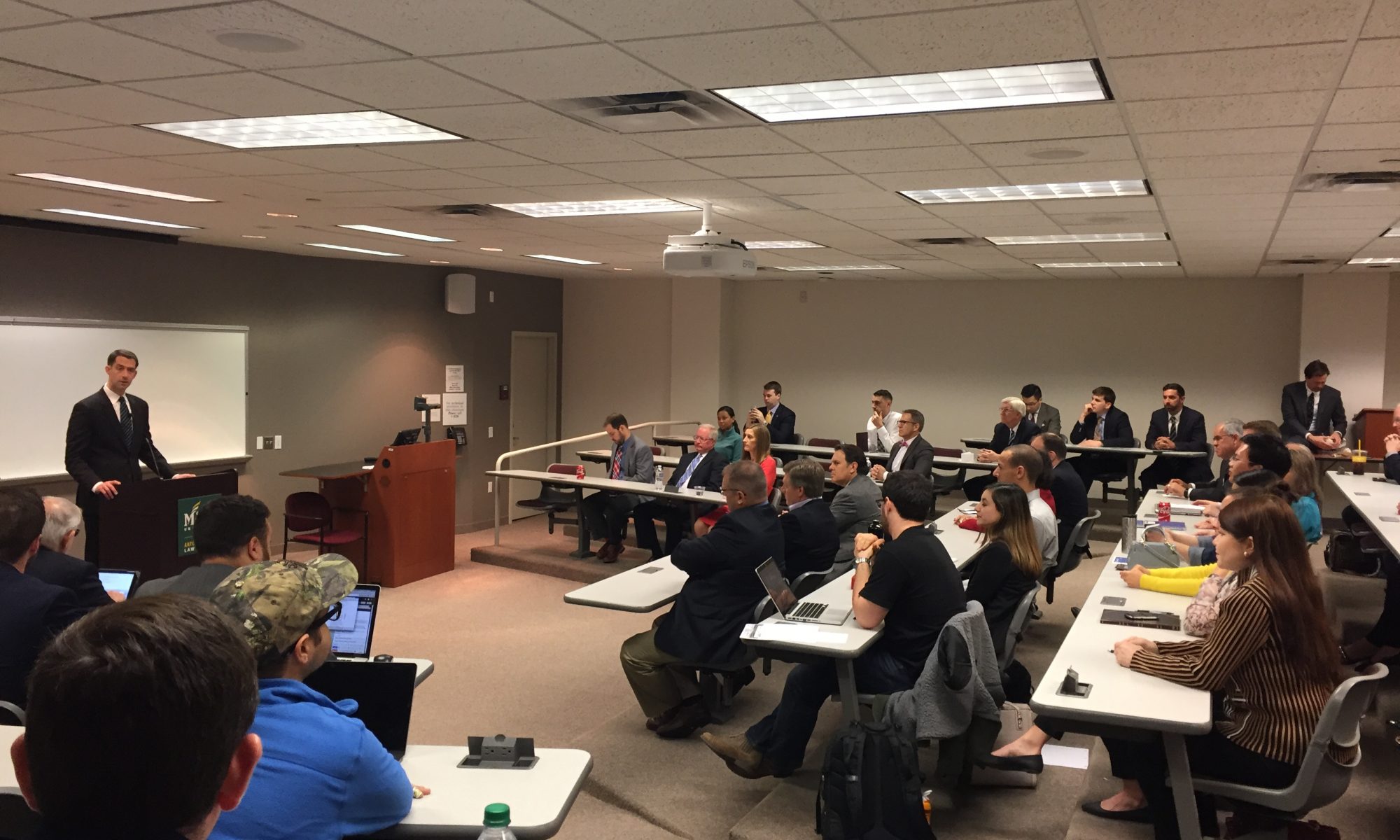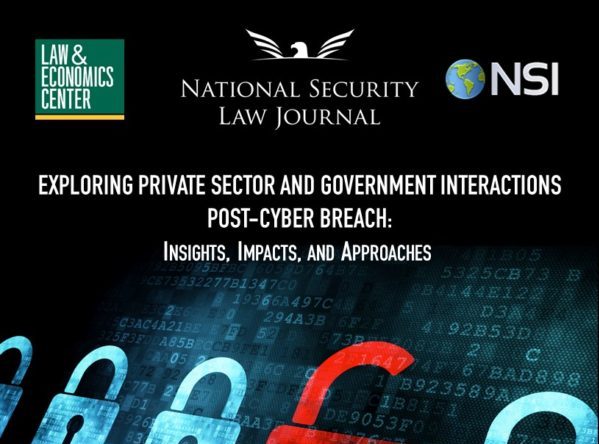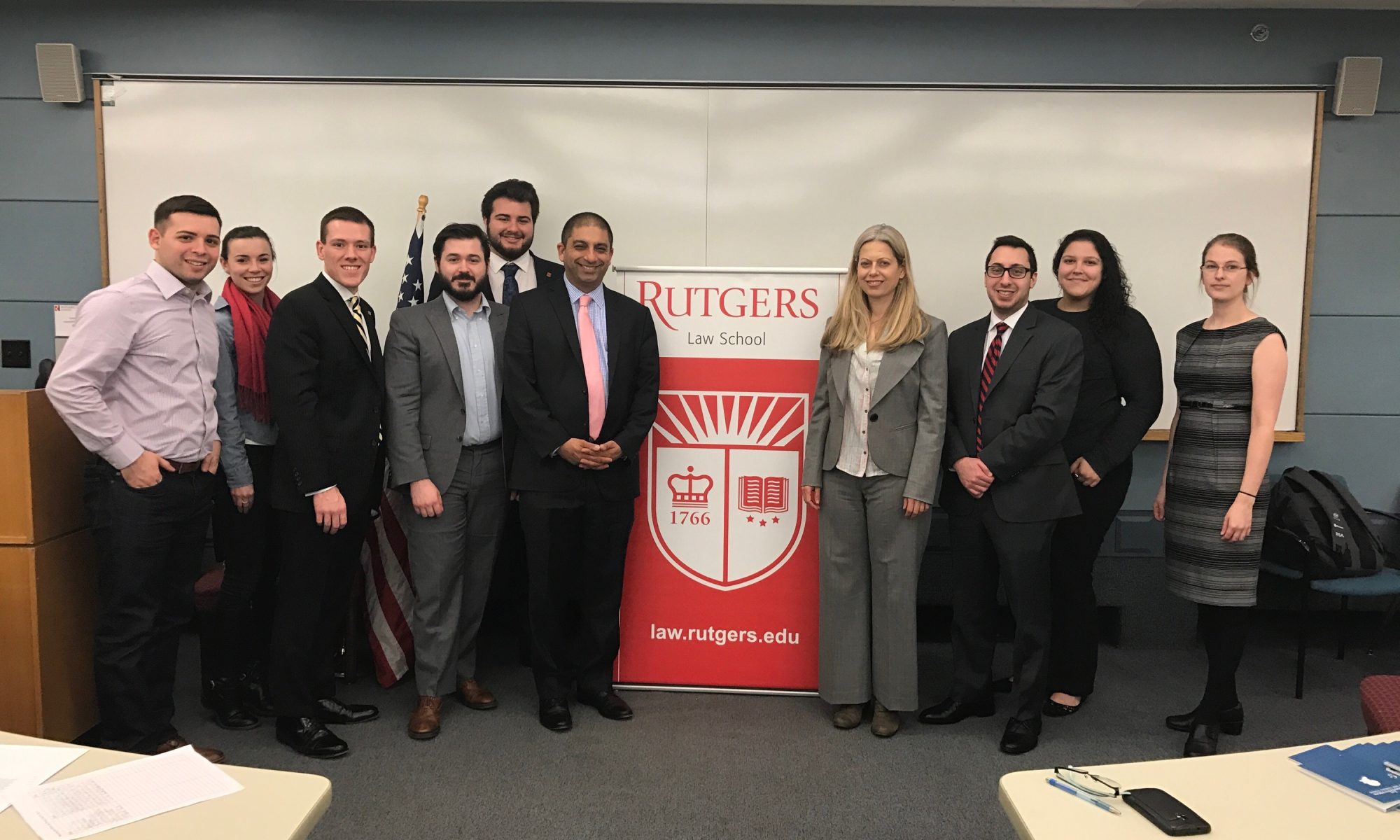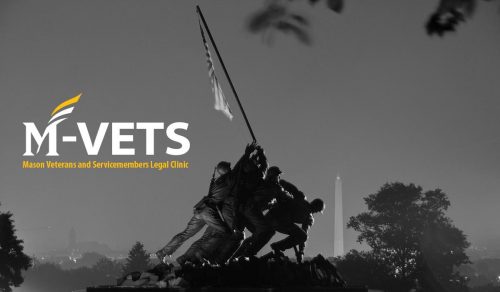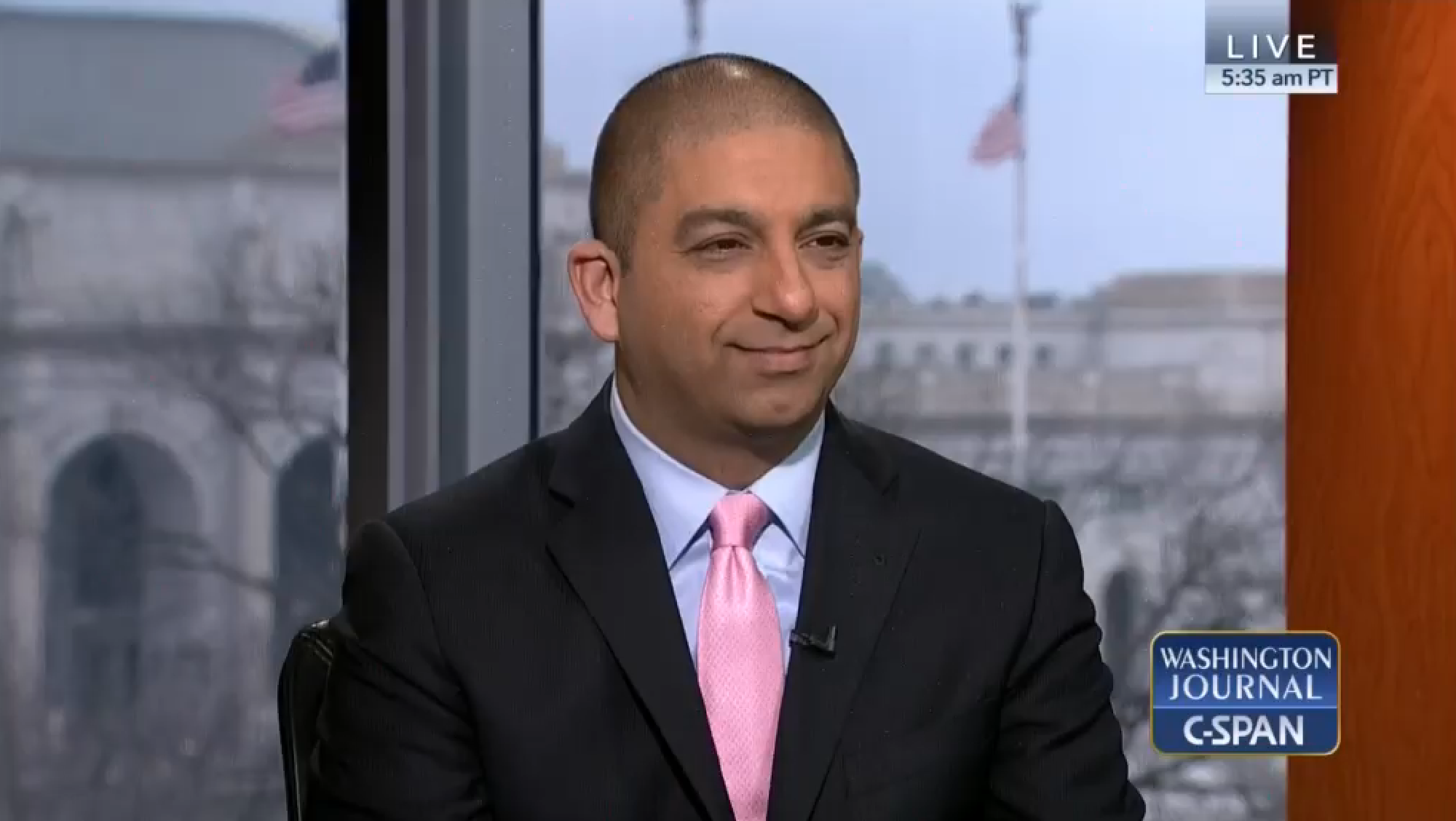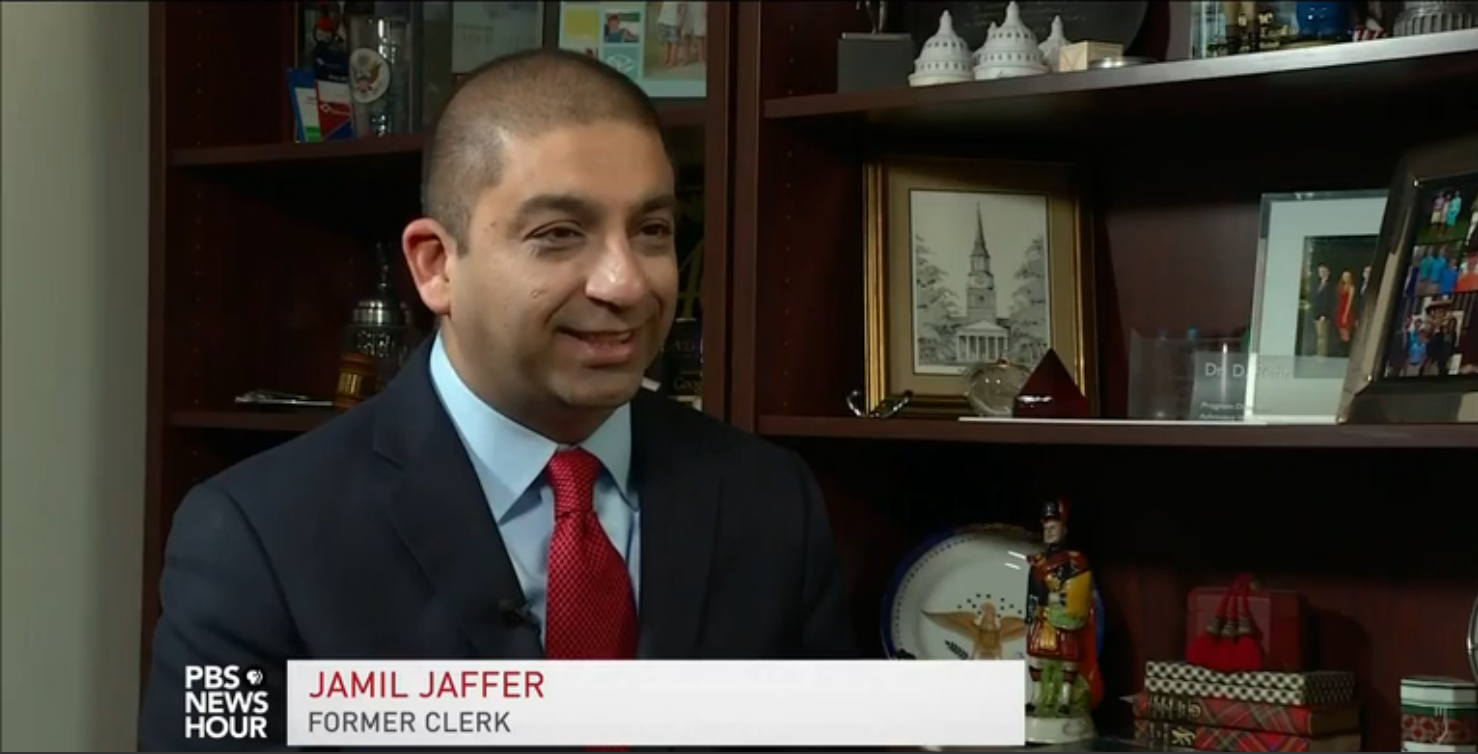The U.S. Defense Industrial Base: Can It Compete In The Next Century?
The National Security Institute at George Mason University’s Scalia Law School and Duco Experts are excited to publish: The U.S. Defense Industrial Base: Can It Compete In The Next Century? NSI and Duco surveyed over 100 national security, foreign policy, and intel experts on key provisions of the House- and Senate-passed versions of the FY 2021 NDAA, as well as on other critical national security topics. This report summarizes the survey’s results and key findings include:
- There is a greater threat perception of China vis-a-vis other adversaries, with a majority of survey respondents consistently supportive of defending against China even though doing so may have economic consequences.
- There is near consensus that the United States’ military advantage is shrinking relative to key adversaries and one of the means of addressing this trend is by making it easier to procure domestic commercial technologies.
- There is broad acceptance that the U.S. defense industrial base is vulnerable and that the federal government bureaucracy makes it harder for commercial firms to do business in the federal market, though there are differing opinions on the correct approach to strengthen the U.S. defense industrial base.
- There is broad consensus that the Department of Defense (DoD) budget, requirements, and contracting processes are unnecessarily burdensome and too bureaucratic and that it is in the long-term interest of the DoD to engage in policy changes that make the process less bureaucratic in order to increase competition and foster a strong defense manufacturing base.
Experts who took the survey and shared their insight include:
- (Ret.) Keith Alexander, former Director of the NSA and former Founding Commander of U.S. Cyber Command
- Nora Bensahel, Visiting Professor at Johns Hopkins School of Advanced International Studies
- Richard Ledgett, former Deputy Director of the NSA
- Peter Singer, former Director of the Center for 21st Century Security and Intelligence at Brookings
- David Shedd, former Acting Director of DIA
- Gen. (Ret.) John Wharton, Ret. Commanding General of the Army Research, Development & Engineering Command
Click here to read the complete report.
Fox 5 DC: The Final 5 – North Korea nuclear threats & Equifax data breach
Friday, September 8, 2017
NSI Founder Jamil N. Jaffer appeared on Fox 5 DC’s The Final 5 to discuss North Korea nuclear threats and the Equifax data breach.
NSI in the Media
Recent Media Hits from NSI Founder Jamil Jaffer:
September 5, 2017 Axios – Quote: Nikki Haley sounds ominous notes on Iran deal
September 3, 2017 VOA International Edition: North Korea says it tested a hydrogen bomb. What China can do about it. Kenyan election woes. Health hazards from Hurricane Harvey. Remembering a master of song.
Clip begins @ 1:05 – 5:40
August 28, 2017 – Bloomberg Technology: North Korea Appears to have Fired Missile Toward Japan: NHK
Clip begins @ 37:40
Recent Media Hits from NSI Faculty:
September 1, 2017 Wall Street Journal: ‘Killer Robots’ Can Make War Less Awful
Jeremy Rabkin, Faculty (GMU & NSI)
NSI in the Media
Recent Op Eds from NSI Founder Jamil Jaffer:
August 22, 2017
The Hill
Jamil N. Jaffer
Finally, U.S. appears ready to battle China’s rampant IP theft
August 17, 2017
Lawfare
Jamil N. Jaffer & Megan Stifel
Invisible Hands and Iron Fists: Challenges in Regulating the Innovation Economy
Recent Television Appearances:
August 4, 2017
CBS News
Special Counsel is using grand jury in Russia probe
August 10, 2017
Fox 5 DC
North Korea Threat: Saber-rattling or the real deal?
August 18, 2017
Fox Business
Should Trump put more troops in Afghanistan?
August 22, 2017
Fox 5 DC
President Trump’s refocus on War in Afghanistan garners reaction
August 23, 2017
Fox News
Images show Kim Jon Un with potential new missile plans
Recent Articles:
August 12, 2017
Bloomberg Politics
China’s Xi Seeks to Calm North Korea Tensions in Trump Call
August 14, 2017
The Washington Post
Trump administration goes after China over intellectual property, advanced technology
August 17, 2017
News at Mason
Scalia Law’s Jamil Jaffer returns to the classroom after clerking for Justice Gorsuch
August 21, 2017
Morning Consult
After Cyber Command Elevation, Split from NSA Could Be Next
Scalia Law’s Jamil Jaffer returns to the classroom after clerking for Justice Gorsuch
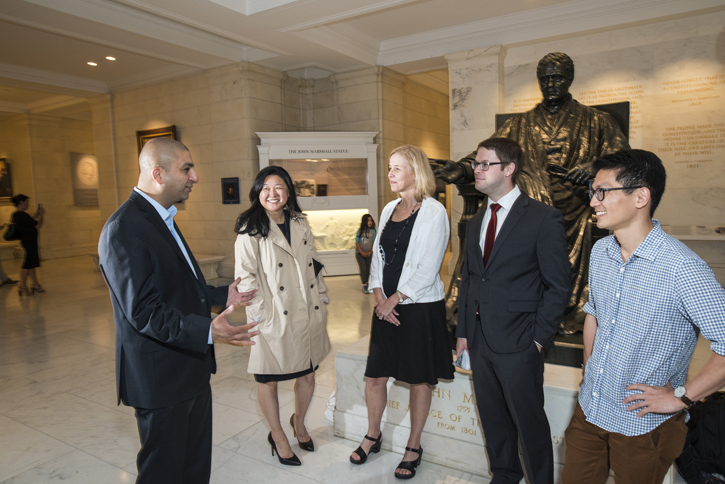
Although he said he will miss working at the Supreme Court, Jamil Jaffer is just as happy to be back in the classroom as a professor at George Mason University’s Antonin Scalia Law School.
In July, Jaffer completed a three-month stint as a law clerk for newly confirmed Supreme Court Justice Neil M. Gorsuch. He returns to George Mason’s classrooms, he said, with the kinds of insights only firsthand experience can impart.
“Working on the lead-up to Justice Gorsuch’s nomination and subsequent confirmation, as well as a law clerk to the justice at the Supreme Court during his first three months on the bench, will help me provide students with some insight on the process of how a justice is nominated and confirmed, how the court works on a day-to-day basis, and the range of opportunities Mason students might have to work with the courts, whether it’s at the Supreme Court or other courts at the local, state, and federal levels,” he said.
Jaffer, who is also the founder of the law school’s new National Security Institute, was selected for the prestigious clerking position—justices typically employ only four clerks; the chief justice may hire five—because he had clerked for Gorsuch before, when Gorsuch was a new judge at the United States Court of Appeals for the Tenth Circuit in Denver, Colo. The other clerks and staff that helped Gorsuch get started were very close to him as well, Jaffer said.
“Justice Gorsuch was confirmed on a Friday, started working on Monday, and by the next Monday had to be prepared to handle 13 cases for the April sitting of the court,” he said. “So he got a small group of his experienced former law clerks and staff together to help him with that process.”
Jaffer said although he will miss working at the Supreme Court, he looks forward to the relatively more predictable hours of working at a cybersecurity startup, teaching his National Security Law course and helping quarterback the institute, as well as continuing his academic work at Scalia Law and his visiting fellowship with the Hoover Institution.
“At the court the in-person hours can get pretty long,” he said. “And in certain instances, the work can keep you at One First Street into the wee hours of the morning. … Now I’ll probably see my family on evenings and weekends more, although I’m not sure I’ll be doing all that much less work.”
This article was originally published by Buzz McClain for the News at Mason website here.
Faculty Paper: Regulators in Cyberia
A team from the Regulatory Transparency Project, including NSI Founder Jamil N. Jaffer and NSI Advisory Board members Stewart Baker and Paul Rosenzweig, recently authored a ground-breaking paper on cyber regulations. The paper highlights the unintended consequences that regulations can have on America’s most dynamic and fastest growing industry: the technology sector. This paper is the first of a series exploring differing viewpoints on regulatory matters. The paper is available here and more information about the Regulatory Transparency Project can be found here.
Key highlights from the paper include:
- What is the role of Federal regulation and standard setting in the technology sector?…Our conclusion is simple – regulation should be the [f]ederal tool of last resort.
- Over the past four decades or so, the technology sector has enjoyed rapid growth, with tremendous innovation across a wide range of markets, in significant part because of the relative lack of regulation.
- This is not to suggest that the technology industry, like others, could not benefit from incentives to promote beneficial behavior, nor that regulation may never be necessary[; t]o the contrary, there are a wide range of social outcomes that policy makers might want to encourage.
- [T]he best approach to obtaining potential benefits is typically with positive incentives (the “carrot”) rather than reaching instinctively for the regulatory “stick.”
- With parties given incentives to create solutions, imaginative new approaches can improve outcomes while costly “unintended consequences” are avoided.
- While the use of positive incentives may take longer to propagate through the economic system than the use of direct regulation, the reality is that positive incentives, particularly if deployed to a wide range of organizations…can have similar outcomes to direct regulation over the long run.
- The danger of regulatory overreach in the technology sector is particularly strong. Regulations are inherently rigid…This reality makes it hard to engage in rapid course correction when needs change, perhaps – as endemically occurs in this sector – because an established business model has been disrupted or an underlying technology displaced.
- Rules which had been perceived as necessary remain stuck in time, fixed in place long past their usefulness. There they become impediments rather than expedients.
- More often than not, regulators would be wise to follow the advice, “Don’t just do something, stand there.”
- With short-lived product cycles and waves of technological progress, heavy administrative processes will struggle to keep up. Regulators are not known for an innovative approach to seeking better, more efficient ways to regulate.
- In an environment where the market is dynamic, this paper concludes that the best answer is a “do no harm” approach to the use of regulatory tools…[employing] general standards whose meaning evolves as technologies change.
To read more, click here.
Distinguished Speaker Series: Senator Tom Cotton on Defending the Nation and Section 702



The National Security Institute at the Antonin Scalia Law School, George Mason University and the Intelligence and National Security Foundation present the first event in our Distinguished Speaker Series featuring Senator Tom Cotton, Member of the Senate Select Committee on Intelligence and Chairman of the Airland Subcommittee of the Senate Armed Services Committee, for a discussion on defending the Nation in the 21st Century, including Section 702 reauthorization and empowering the intelligence community to detect and monitor threats to our nation.
NSLJ Spring Symposium: Exploring Private Sector and Government Interactions Post-Cyber Breach

Please Join Us for Our Spring 2017 Symposium on April 12th at 6:00pm where our panel will explore the legal and policy issues surrounding private sector and government interactions following a cyber incident.
RSVP to [email protected]
We are pleased to welcome a distinguished panel of attorneys specializing in cybersecurity, privacy, and national security law from the public and private sector for this event, two of whom are George Mason alumni.
Panelists
Scott Ferber, Associate Deputy Attorney General, Department of Justice (National Security Division) Washington, DC: Bio Forthcoming
Gerry Stegmaier (GMU Law ’00), Partner, Reed Smith LLP, Washington, DC: Gerry is a partner in the Reed Smith’s Intellectual Property, Information and Innovation group. He focuses his practice on corporate governance, intellectual property and Internet issues, especially as they relate to privacy, information security and consumer protection. An experienced and pragmatic litigator, Gerry focuses a significant part of his practice on prelitigation and advisory services relating to business strategy for privacy by design, data protection, intellectual property, and emerging technologies and markets, often acting as outside product counsel to leading innovators and disruptive technology companies.
Gerry is designated as a Certified Information Privacy Professional by the International Association of Privacy Professionals. In recent years, he has helped many automotive, health information technology, data management, advertising and consumer technology companies with information management and protection strategy including some of the most popular consumer products and services of the last decade.
Gerry graduated magna cum laude from Antonin Scalia Law School at George Mason University where he was an editor of the George Mason Law Review. Following graduation, he clerked for the Honorable Pauline Newman of the U.S. Court of Appeals for the Federal Circuit. He is a practitioner in residence and a Senior Research Fellow for George Mason’s Program on the Economics of Privacy as well as an adjunct member of the law faculty.
Robert Duffy (GMU Law ’09), Associate, Baker McKenzie, Washington, DC: Robert is a litigation associate in Baker McKenzie’s Washington, DC office. His practice involves advising clients on administrative, civil and criminal litigation matters, as well as internal investigations. Robert is a member of Baker McKenzie’s global cybersecurity practice.
Mr. Duffy focuses his practice on internal investigations and litigation related to complex administrative, civil and criminal matters. He advises clients on cybersecurity issues related to compliance and incident response. He also advises clients on information governance such as legal standards for securing data and identifying, preserving, collecting, and producing data in the context of litigation, internal investigations, and other disputes. He advises clients on the use of predictive coding and other advanced technologies in the context of internal investigations, government investigations, and civil litigation. He regularly utilizes his background in computer science and software engineering to deliver unique insights to clients facing complex legal issues implicating information technology.
Representative matters include advising a major telecommunications provider on compliance with a DOJ Civil Investigative Demand regarding competition issues, counseling one of the world’s largest providers of banking and payment services with respect to a significant cyber attack, and counseling a major transportation company in response to an FTC investigation regarding cyber issues.
Robert graduated from Antonin Scalia Law School at George Mason University in 2009.
Stay Tuned for Information About Our Potential Fourth Panelist!
Moderator
Kiran S. Raj, Partner, O’Melveny & Myers LLP, Washington, DC (Formerly Deputy General Counsel, Department of Homeland Security): Formerly the Department of Homeland Security’s highest-ranking attorney focused on cybersecurity and technology, Kiran draws on his extensive government and corporate experience to counsel clients on their most critical privacy and cybersecurity issues.
Before joining O’Melveny, Kiran served as Deputy General Counsel at the Department of Homeland Security, working directly with leaders of corporate America on the intersection of cybersecurity and privacy with law, policy, and technology. Kiran held a similar role at the US Department of Justice as Senior Counsel to the Deputy Attorney General, where he advised the Department’s senior leadership on significant issues and managed policy-related matters, with particular focus on cybersecurity, national security, and civil litigation.
At DHS, Kiran also managed the Technology Programs Law Division and oversaw department-wide intellectual property law matters, including patent, trademark, copyright, data rights, and related litigation, calling on his electrical engineering and computer science background. Previously, he was a lead program manager at Microsoft and held a wide-ranging role in a startup environment that included technical leadership, business development, and marketing efforts.
Kiran also teaches National Security, Surveillance & Cybersecurity Law as an Adjunct Professor at the Antonin Scalia Law School at George Mason University. He is also a faculty member of the recently created National Security Institute at Antonin Scalia Law School and clerked for the Honorable Pierre N. Leval of the United States Court of Appeals for the Second Circuit.



Balancing Security and Surveillance with Personal Privacy and Civil Liberties Discussion



NSI Founder Jamil Jaffer spoke as part of panel discussion on balancing security and surveillance with personal privacy and civil liberties hosted by Rutgers Law School, the National Security Law Association, and the Federalist Society in Camden, NJ on April 5th, 2017.
Upcoming Event: April 6, 2017 Navy-Marine Corps Court of Criminal Appeals Oral Arguments

Navy-Marine Corps Court of Criminal Appeals Oral Arguments
Sponsored by the M-VETS Clinic
Antonin Scalia Law School, George Mason University
Thursday, April 6, 2017 | 2:00 PM to 4:00 PM | Founders Hall Auditorium
Sign up for the event
Article: Clear Thinking About Protecting The Nation in the Cyber Domain

March 30, 2017
General (Ret.) Keith B. Alexander, Jamil N. Jaffer, and Jennifer S. Brunet
The Cyber Defense Review
Clear Thinking About Protecting The Nation in the Cyber Domain
C-SPAN: Surveillance and Intelligence Collection
Jamil Jaffer on Surveillance and Intelligence Collection
NSI Founder Jamil Jaffer went on C-SPAN on March 26, 2017 to discuss FISA and other surveillance and intelligence laws both in the U.S. and overseas.
Jamil Jaffer, Former Clerk to Supreme Court Nominee Neil Gorsuch, Testifies Before Senate Judiciary Committee on Behalf of Nominee
EMBARGOED FOR RELEASE
March 23, 2017
Contact: Mike Burita
[email protected]
202-420-9361
Scalia Law Adjunct Professor Jamil Jaffer, Former Clerk to Supreme Court Nominee Neil Gorsuch, Testifies Before Senate Judiciary Committee on Behalf of Nominee
Arlington, VA – Jamil N. Jaffer, an adjunct professor at Antonin Scalia Law School at George Mason University, will testify before the U.S. Senate Committee on the Judiciary today in support of Supreme Court nominee Neil S. Gorsuch. Jaffer served as a former law clerk to Gorsuch and is available for interview to share his perspective on President Trump’s pick for the nation’s highest court. Jaffer knows Gorsuch well both personally and professionally. A live stream to today’s hearing is available here.
Jamil N. Jaffer is founder of the National Security Institute at George Mason University’s Scalia Law School. He is an expert on counterterrorism, intelligence, surveillance, cybersecurity, and other national security matters. In addition to the government service described below, during the Bush Administration, Jamil served in the Justice Department’s Office of Legal Policy where he worked on the confirmations of Chief Justice John G. Roberts, Jr. and Justice Samuel A. Alito, Jr. to the United States Supreme Court.
Jamil previously served as the Chief Counsel and Senior Advisor for the Senate Foreign Relations Committee and as Senior Counsel to House Intelligence Committee. In the Bush Administration, in addition to serving in OLP, Jamil served in the White House as an Associate Counsel to the President and in the Justice Department as Counsel to the Assistant Attorney General for National Security.
Jamil Jaffer’s full bio is here and recent media appearances here and here (PBS interview starts at 3:35).
About George Mason
George Mason University is Virginia’s largest public research university. Located near Washington, D.C., Mason enrolls more than 35,000 students from 130 countries and all 50 states. Mason has grown rapidly over the past half-century and is recognized for its innovation and entrepreneurship, remarkable diversity, and commitment to accessibility.
About the Scalia Law School
The Antonin Scalia Law School at George Mason University is defined by three words: Learn. Challenge. Lead. Students receive an outstanding legal education (Learn), are taught to critically evaluate prevailing orthodoxy and pursue new ideas (Challenge), and, ultimately, are well prepared to distinguish themselves in their chosen fields (Lead). It has been one of America’s top-ranked law schools for the last fifteen years.
PBS Newshour on Judge Gorsuch
What to expect from Neil Gorsuch’s confirmation hearings
PBS Newshour’s Jeffrey Brown talks with NSI Founder Jamil Jaffer during a PBS Newshour segment on March 20, 2017 for a piece on Supreme Court nominee Neil Gorsuch.

